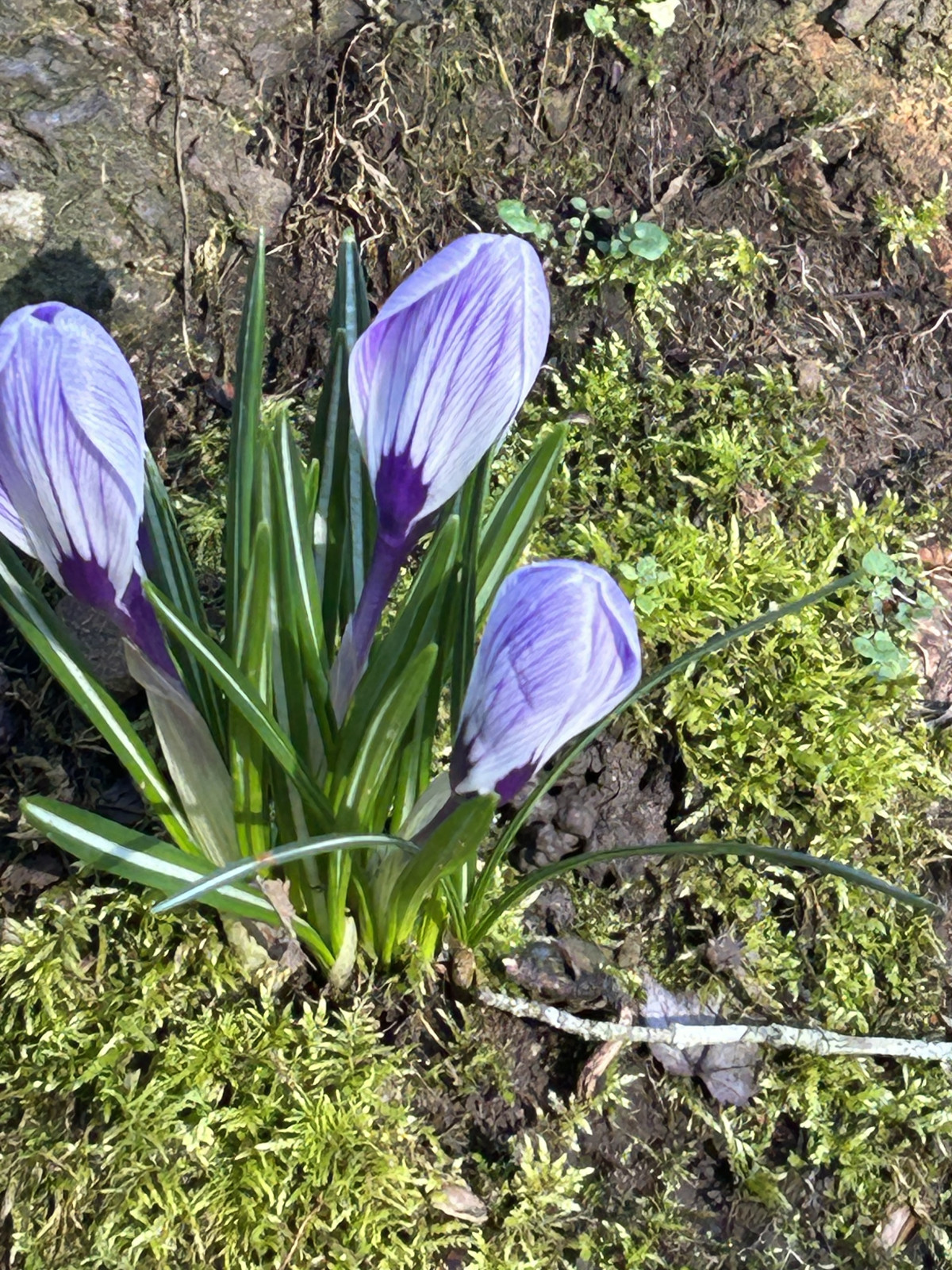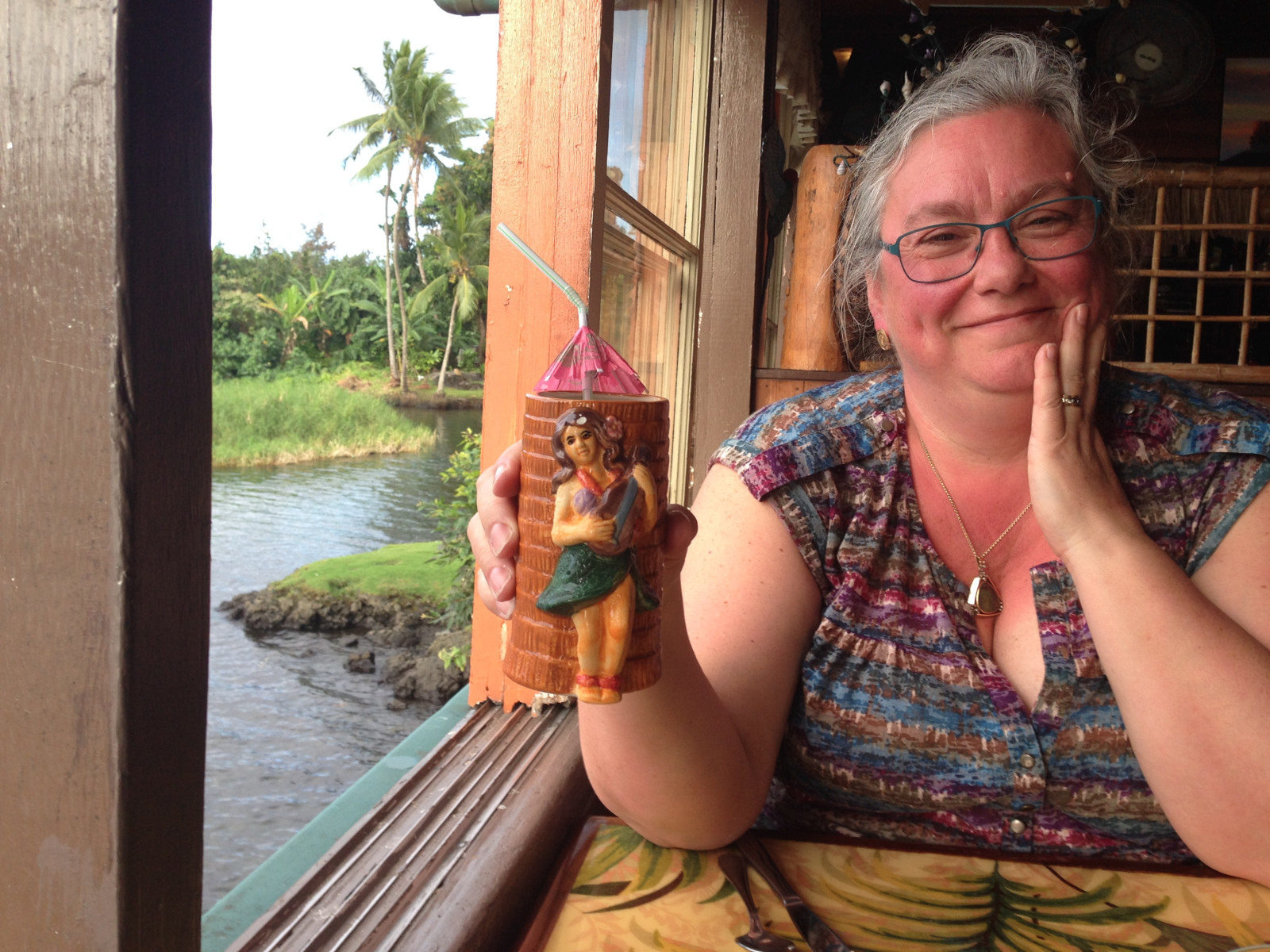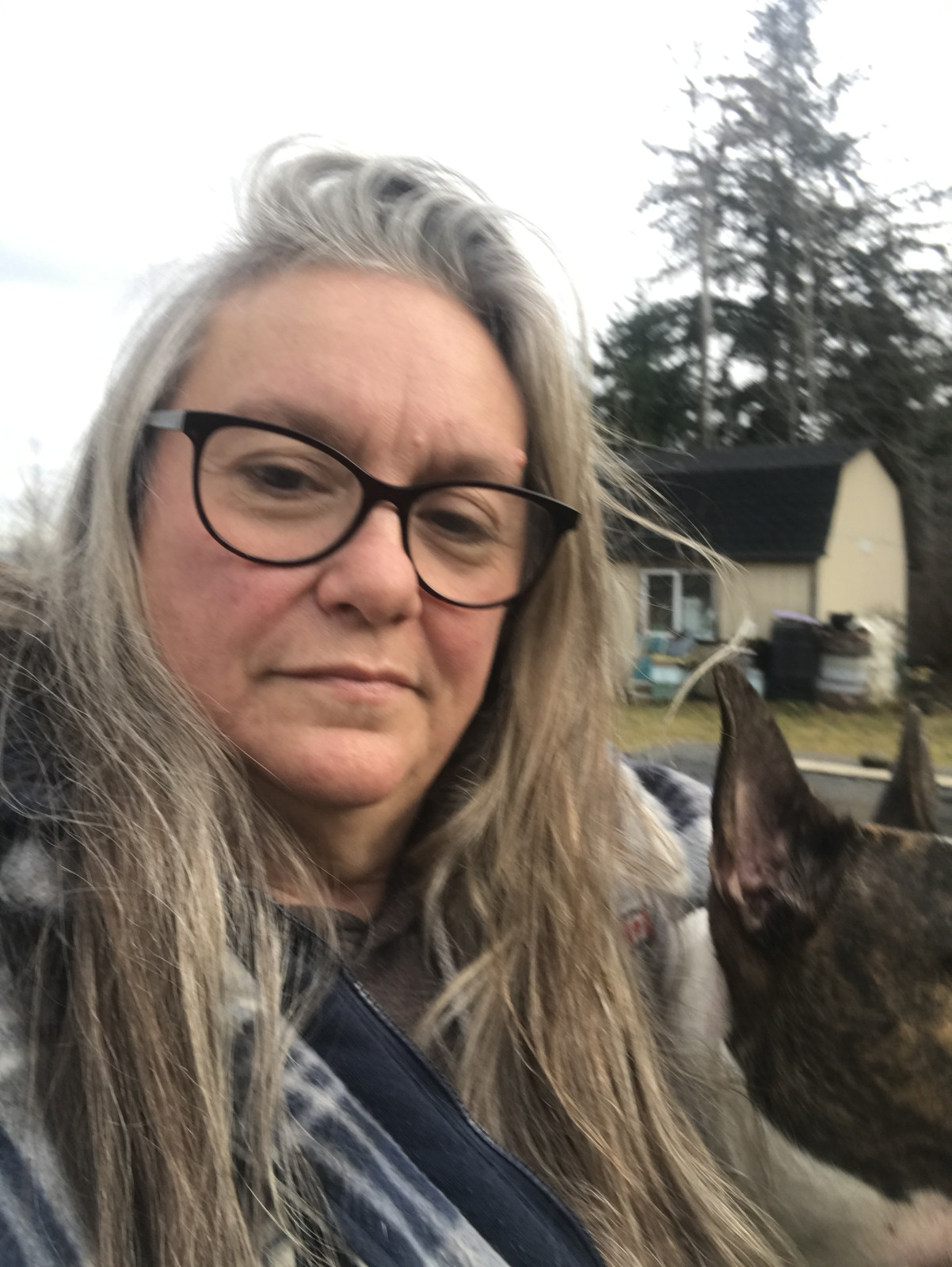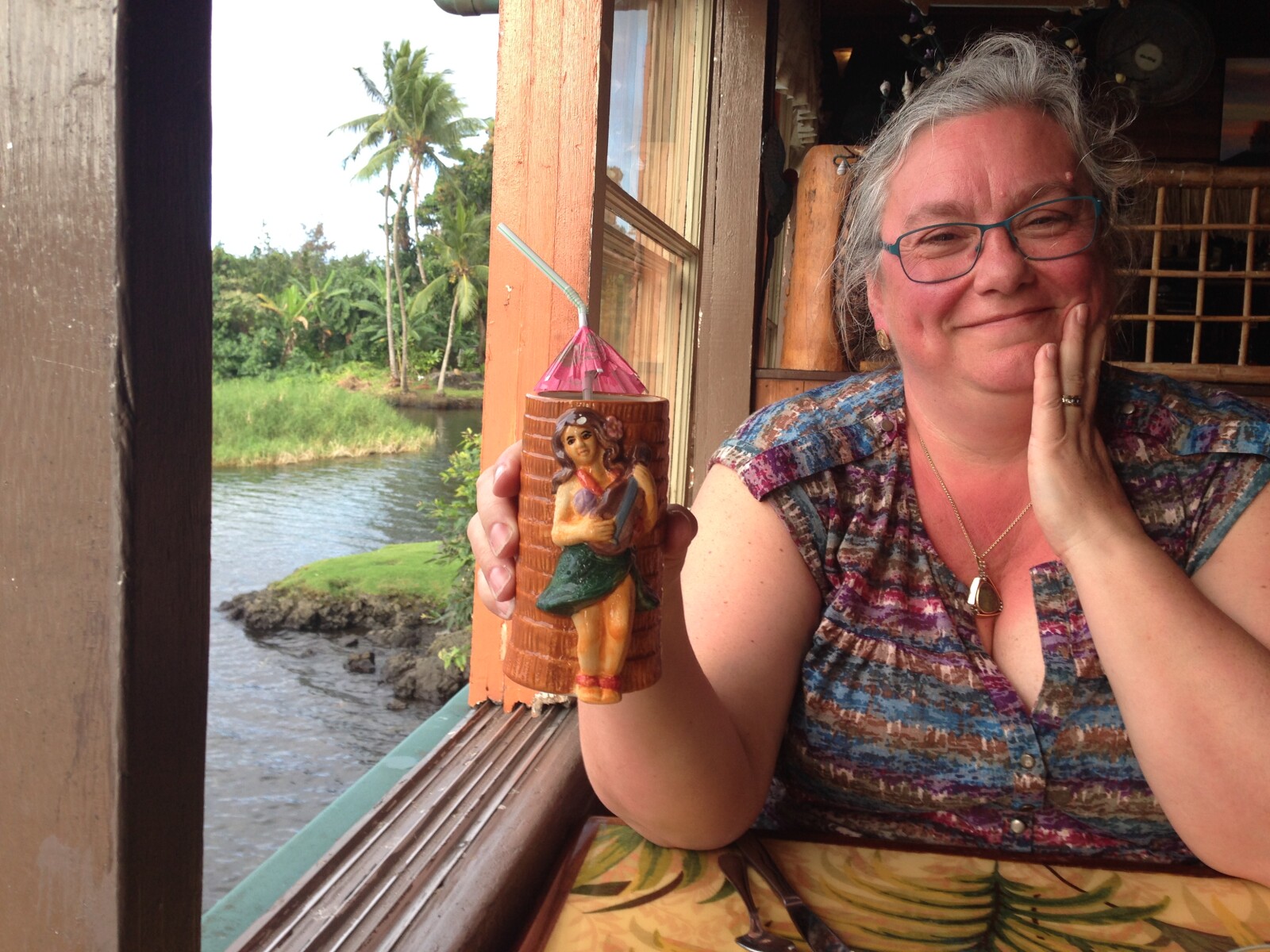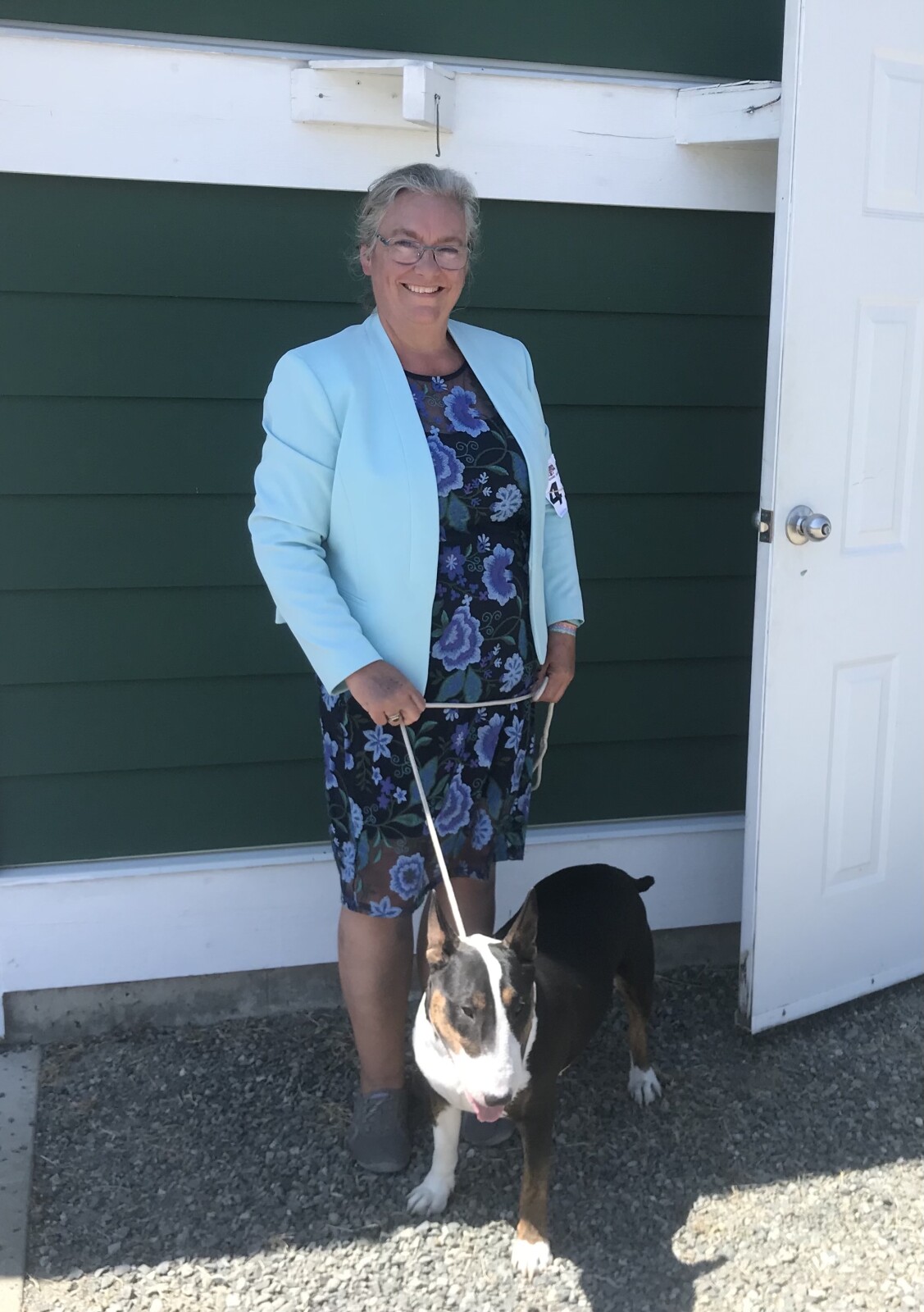
This is the first of ten posts discussing the lessons my second heart attack taught me.
Now you may or may not know that in July 2020, as the first wave of the pandemic flattened out a bit. I had a heart attack at work.
It was a typical woman's heart attack -- it was silent and had only one undefined symptom: I felt like I had a pinched nerve in my neck. I had this feeling for four days before I decided to go to the ER and get a shot for pain.
Turns out, I was having a heart attack. I never considered that it could be a heart attack because I have no family history of cardiovascular disease, I had well managed blood pressure and my cholesterol levels were never of concern. I had been well managed my whole life because I had rheumatic fever as a child so I was no stranger to echocardiograms and stress tests.
I needed two stents and then had 18 months off work to remove stress from my life, I followed the rehab plan, the medication plan, the lifestyle plan. And yet in November 2021, I had a second, much worse, heart attack.
These lessons are what I learned in coming to terms with the fact that you can do everything you are supposed to do and, as my Cardiologist said, still have "shit house bad luck"
Lesson 1: It is great to be alive no matter what you experience in your day.
It is hard to state this strongly enough but the majority of things we allow ourselves to get upset over mean nothing over time and we get wrapped up in them with no results possible. We are in them because we want to be right. And we want the other person or organization or system or whatever to see our rightness and adapt their ways to ours.
This kind of self-inflicted stress wastes our energy and has us living in a negative head space.
Now I work every day on letting go of the stuff I have zero control over and have learned to walk away from conversations that are simply argumentative and focused on getting the other person to think the way I think.
Being alive is the greatest gift you will get in your day. Remind yourself often of that. Feel that in every cell of your body. Honour your body's continued functioning -- even it if it diminished -- and give it what it needs.
Hear me when I say this -- No work, no task, no other people, no system, no belief, no thing is more important than being alive. And if you continue to sacrifice your body's wellbeing for any of those things, you won't be around to experience them.
Your body has a limit.
Join me next post for Thing #2 - Stress Accumulates.
If you liked this blog post and want to get notified when more are ready....click the subscribe button below!
Chris

The current obsession with "quiet quitting", a term apparently created on TikTok to mean people who go to work and do their jobs without taking on extra, has really steamed me.
How did we get to a place when merely doing your job, the tasks you were hired and paid to do, was in some way slacking, implying dereliction of duty?
The consistent creep of job duties over the past couple of decades has normalized overworking to such an extent that many employers now view overworking as the baseline required - not the exception to the rule but the norm. In many salaried employee contracts, overworking is even written into the contract!
So where does that leave employees who are doing more than ever for the same pay -- in effect experiencing a reduction in their wages per hour or salary because the obligations have increased. It leaves them with a organizational expectation to spend their own time to complete work that the employer has assigned without remuneration. It leaves them working longer hours for the same pay. And EVEN IF there is overtime pay involved, the expectation to complete more work cuts into an employees personal time, reduces the recovery time off needed to be a great employee, and introduces shame/guilt as a tactic to "motivate" more work out of them.
I haven't seen a conversation anywhere about how this defacto reduction in wages is being addressed or even acknowledged --NOPE what we see is a label being applied to it that implies employees are in some way slacking from their duties.
I call Bullshit to using the term "Quiet Quitting" to define "Doing your Job" -- Let's start naming the expectation of overwork for the abuse of the employer/employee relationship that it is.
Terms like "Expected Extras", "Task Creep", "Freebie Assumptions" are all much more honest depictions of what the culture of the workplace is. "Quiet Quitting" doesn't even come close to naming the revolution in the workplace that is happening.
I, for one, applaud those workers who have looked at what their work lives have become, how they have taken over much of their private life and their own brainspace, and said enough. I will do my job to the best of my ability and no more.
If employers cannot get the work of their organization done in the time of the work week with the employees they have, it is time to rethink the business model, hire more people, and honour the efforts of those already working for you.
If you liked this blog post and want to get notified when more are ready....click the subscribe button below!

i have been working for over 2 years now to vanquish my Type A tendencies. Type A personality traits are typically associated with motivation for high achievement, impatience, overworking and competitiveness. I call these the 4 Horsemen of Type A. And their uncontrolled impact on your life can be deadly.
Don't be fooled that these only show up in work life. They infiltrate your private life and family. Hobbies are competitions and mine was gardening. I maxxed out at 175 tomato plants one year and didn't even think it was a problem. Two years later we are still living off of the canned tomato products that I made from that harvest.
You also tend to project these behaviours onto your kids -- why have fun playing hockey when you could try to be an NHLer? Or your happy journaling girl is suddenly heading for a Nobel Prize in literature. Or making your track loving boy watch hours of the Olympic to "motivate" them. So much for hobbies for fun.
This is where the problem lies. Us Type A riders take normal, fun activities, and make them all competition for success and acknowledgement. And our achievement seeking leads us to be really great at our jobs.
These traits are not, in and of themselves, harmful, except that our culture HIGHLY prizes the results these traits bring. When you ride with the Horsemen, the exhilaration, the public succes, and the financial rewards make it nearly impossible to get off the horse.
We have been taught since grade school to seek out external validation - from winning reading awards, to science fair competitions, to striving for grades significant enough to get us scholarship -- all this validation sets us up to continually be striving and putting off things that are more esoteric, calm or quiet. We are bombarded with effort/reward scenarios from the time we are born and our parents start us off on the journey often living out some of their unfulfilled history and we, in turn, pass it along to our children.
Our desire for this external validation becomes the source of some of our biggest burnout activities in adulthood.
Much like grade school, our work lives have report cards. Evaluations, performance reviews, 360s, even Accreditation, all fall into the work/validation vortex. And here is where Overwork becomes the Horseman you can't escape.
Organizations are under massive pressure these days -- more than ever there aren't enough people to do the work, so the work gets piled onto those who are already engaged.
Why don't we notice and respond? Because it happens in increments. You start out working 45 hours in your 40 hour week then suddenly and surprisingly you are at 60 -- not counting the hours you work at home.
Non-work activities get cancelled, rebooked, ignored, and forgotten. Your kids look at you and learn. Jim Croce called in in Cat's Cradle as a kind of Cassandra doomed to foretell the future and have no one believe her.
So we find ourselves working more, living for the adrenaline of the top marks in performance review, the possible wage increase for excellent performance, and continue to get pulled back into the negative vortex until we can no longer see the problem. "Somebody has to do the work".....
But let's really think about what our riding the Overworking horse means -- fundamentally it means we are enabling the system to continue on without having to change.
Yes, we are the reason that the system hasn't changed!!! It relies on both our tendency to value overwork as a signal of success AND our refusal to allow our colleagues to work short.
This is the sword that kills us. That we must stop doing the overwork in order to force change.
It won't happen fast. All the data the system uses to function is based on decades of overworking employees and it is scary to step into the unknown where people ONLY work their designated hours.....time has come to get off this horse.

I spent my entire Sunday sitting with my Demons. And it made me a better person today.
My demons worked hard to tell me that taking downtime meant that I was lazy. I could feel the disdain of my maternal grandparents as I argued with my demons that my body and mind were tired and needing rest. A day without work. Without tasks. Without expectations.
Those demons were loud. "How can you be successful if you sit there doing nothing?".
"You are never going to achieve your goals being lazy"
"Who do you think you are just leaving your house in this state -- what will people think if they see it?"
"Just get up and do a couple things -- you will feel better and won't have wasted the entire day"
"There are a LOT of tasks on that to-do list and they won't get themselves done!"
All these demons, picking away at my brain -- telling it that my body was lying to me and was really just a layabout. That my body is lazy, in need of strong action to get it moving.
But my body whispered, "I just want to be."
So I put my coaching hat on and asked my demons where did they feel the feelings they were shouting at me? Where in life did they learn the lesson that rest was lazy and that doing something, anything, would make an exhausted body feel better.
They didn't like the questions and the messages just got louder, as if maybe I wasn't hearing them enough to take action. My demons demanded action to feel fulfilled and no amount of meditation, of oneness, of being, suited their agenda.
My body just smiled and said I will be stronger if you let me rest.
My demons howled with laughter. HOW can you be stronger if you sit around doing nothing.
Then my body said "But I am not doing nothing. I am being. And being is my most profound answer to your loud, abrasive action. Being is what makes me strong. Being is like plugging me in to the universal energy charger. "
And now, exhausted by their endless fidgeting, their yelling, their aggression towards my being body, they slumped down frustrated and finally fell asleep. My body just smiled and said to them all "being is what you all need to do as well. it is truly the only way to change the world."
It was interesting watching my demons get more and more riled up bymy body's revolutionary act of being. The quieter she got, the louder their messages of societal disdain became. Lazy. Failure. Wicked. Slothful. Unsuccessful. Pathetic. All these weapons of busyness were thrown at my body.
But she quietly remained being in her space and I with her. The laundry remained undone. The dishes are dirty in the sink. The dusting was left for another day. The garden remained unweeded. We practiced being in a fundamental space of no expectations. Of quiet. Of pondering. Of stillness.
Now this morning, my body smiled at me and said "Thank you - let's go out and conquer the world. I am ready"
What do your demons say to you when you honour your body and rest?
If you liked this blog post and want to get notified when more are ready....click the subscribe button below!

One of the first things to go, in my experience, in the swell of 21st Century work culture is our commitment to look after ourselves.
It starts slowly.Maybe a missed meal or two during the week. Or that really long day where you don't leave your desk for 6 hours. Or the weekend where you just slip in for a couple hours to get caught up.
In our Zoom after Zoom world, it is increasingly easy to ignore simple bodily functions until we start asking ourselves "did I pee today".
I have seen signs of resistance to this culture of overwork -- office water challenges. Team weight loss challenges. And even pot luck lunches as a way of ensuring people actually _take_ a break and eat.
These are hopeful, communal signs of support and proactivity.
But what we don't see often is the visible leadership to challenge us when we are overworking. When we are staying late and coming in early. When we cancel our holidays because there is just too much to do and no one to cover for us. The system is actually set up to rely on these types of behaviour.
But the system is abetted by our internalization of the idea that no one else is there to do our work and our work cannot be left undone. That we are uniquely placed to complete this work and in order for it to be successful we must appear to be filling every moment of our day with it.
Byung-Chul Han, in his book The Burnout Soceity, tells us that it is the "pressure to achieve that causes exhaustive depression" and that the "achievement subject [the current citizen of the modern world] gives itself over to compulsive freedom -- that is to the free constraint of maximizing achievement" (The Burnout Society 2015, pg10-11).
Our indoctrinated desire to achieve creates in us both the discipline to work, or overwork, AND the outcome of burnout. We are bound by our own "free constraints" of belief of what it means to be a success.
He also notes that our society (within which achievement is the ultimate goal) has little time or respect for idleness, for boredom, for daydreaming, even for sleep -- the very states of mind that are MOST conducive to creativity and resilience because of the state of deep mental relaxation (pg 13) gained during that time.
So if our achievement society demands both creativity and overwork, we set ourselves up for a cognitive impact where disdain and desire clash. This space is where cynicism and negativity grow. It is where hopelessness and helplessness flourish. It is where we lose a LOT of good people to the tyranny of busyness.
In this environment, rest is a disruptive behaviour. It disrupts the common narrative that achievement requires overwork and highlights the value, the necessity, the gift that is non-achievement.
And it is our own sense of achievement, our own desire to be successful in this world, that compels us to overwork so it MUST be our own efforts at downtime, at "doing nothing", that is our response to our own burnout and depression.
It is time to nurture the belief that "profound idleness" is what we require to enhance our creativity, our passion, and reverse the onslaught of burnout that we see in every industry and in particular in Healthcare.
So take the radical position that doing nothing is as or more vital than finishing that report that no one needs today. Leave work unfinished on your desk while you head into the sunshine to breath. Let others see you prioritizing your health and well-being and ask them to join you in rebellious system change.
Systems will, finally, HAVE to adjust if workers start putting themselves first.


